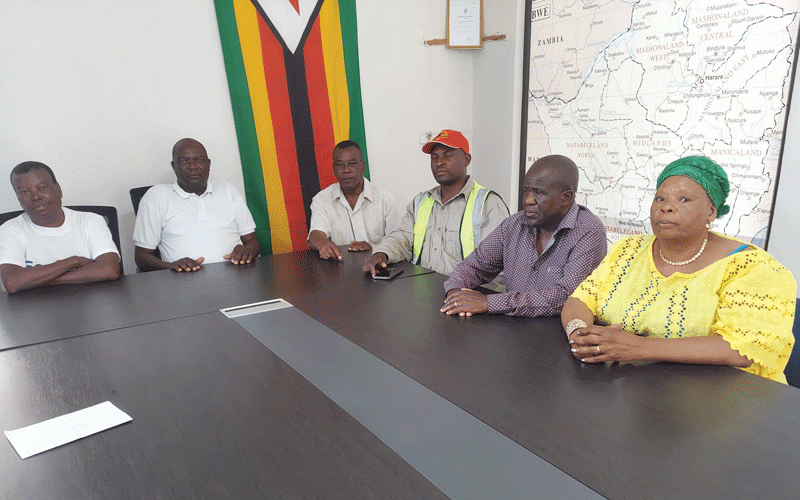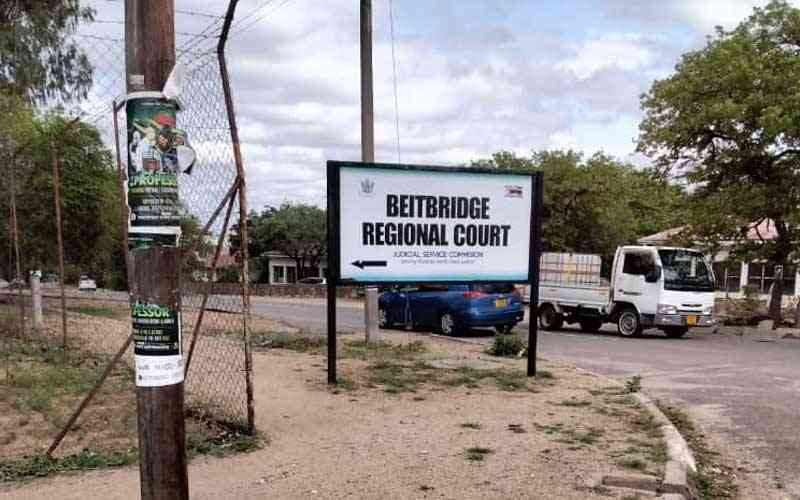
ROARING torrents of water woke her up from her deep slumber. In an instant, it registered in her mind that she and her grandchildren were drowning.
BY PHYLLIS MBANJE
With agility that defied her 70 years plus body, she scooped her three grandchildren and dashed for safety.
Sostina Virira is one of the over 2 000 villagers in the Tokwe-Murkosi Basin in Masvingo province whose homes were submerged in the floods recently.
As she narrates her ordeal after nature went beserk, sadness is etched on her face.
Along with scores of other villagers, who have been housed in a transit camp by the Zimbabwe Red Cross Society (ZRCS) in Chingwizi section in Nuanetsi Range, Virira has lost all hope of ever returning to her village.
She now wishes for a miracle.
“I lost everything in the floods, my home, belongings, my field which was my source of existence, all gone in the blink of an eye,” she says shaking her head as she tries to come to terms with the tragedy. “The sight of water flooding my home and the prospect of drowning always comes to my mind. We got out just in time.”
- Chamisa under fire over US$120K donation
- Mavhunga puts DeMbare into Chibuku quarterfinals
- Pension funds bet on Cabora Bassa oilfields
- Councils defy govt fire tender directive
Keep Reading
But her troubles were not over.
Virira tried to salvage some of her belongings but because of her old age, her progress was painstakingly slow.
She finally gave up.
“We sought refuge at my son’s homestead but as fate would have it the floods followed and swallowed up his home as well,” she said. Tears fill her eyes as she grapples to accept that she is now homeless together with her grandchildren and has no idea how they will survive until the next harvest.
Another victim, Taurai Virira, a qualified teacher at Boterere Primary School in Maranda, also lost all his belongings acquired over a life time.
Like his mother, he is also in the transit camp hoping to get some land soon so he can go back to his work station.
“Chibage changu chese nemapfunde kurova mumvura iyi [All my crops were destroyed in the floods],” he lamented. “Right now I’m not at work. I cannot leave before the allocation of land. I am stuck here with everybody else including my other brother, Abias who also lost his home. We are here, the whole family,” he says.
The Virira family is surviving on beans which they eat with maize meal.
“We boil the beans in the morning and we ration it so that it lasts the whole day. We only received two packets of beans (500g) and a pocket of maize meal. Our supplies are very low,” says Taurai. ZRCS, a voluntary Christian organisation, has been pitching tents for the homeless villagers and supplying other basic needs. The villagers just want land so they can leave the camp as soon as possible.
“This is not our home, the government should just give us land, that is all we want,” says Taurai.
He is sad that they have been reduced to squatters who are now dependent on donations from well-wishers.
He is angry that his children are not going to school.
“I left my two children, one in Grade Five and the other in Grade Zero guarding some of the things which could not fit into the lorry that ferried us here. We just left the things in the mountains, that is where the children are,” he said.
By Friday, over 60 tents had been pitched with more tents still to be erected.
Growing fears of disease outbreak in transit camp
THERE are fears of disease outbreak at a transit camp in Chingwizi section in Nuanetsi Range, where hundreds of families displaced by floods have been temporarily settled.
People who spoke to The Standard said they feared an outbreak of diseases like cholera and typhoid in the absence of clean water. As the ZRCS on Friday grap- pled to pitch up tents to protect the villagers from rain and the chilly nights, the stark need for water became more apparent.
Most of the villagers had come the previous day and the only clean water they had brought with them was finished.
“We do not have clean drinking water and we have forgotten when we last bathed. For now we use the paddles around the camp to wash our clothes but the water is dirty,” said Martha Chambwera.
As more and more people were brought into the camp, the water crisis became even more apparent.
ad been pitched by Friday afternoon, the smell of human waste around the camp was overbearing.
“We are currently using the bush but hopefully when these toilets are finished we can start using them,” said one woman.
Besides the shortage of clean water and food, women in the camp were in desperate need of sanitary wear.
“We do not have anything to use and it is embarrassing to find yourself dripping blood when there are children and men around. If we can have cotton wool or pads, we would be grateful,” said Chambwera. Some of the women said they had resorted to using pieces of cloth but the challenge is they would need to wash them after use.
“There is no water, so how do we wash the soiled cloths? It is unhygienic and we are afraid of getting infections of the womb,” said another woman.
One of the aid workers said they were aware of the problem of sanitary ware.
“We have received reports from the women but for now we have not received any sanitary wear,” she said.
ZRCS secretary-general, Maxwell Phiri said his organisation was making frantic efforts to sink a borehole at the camp.
“We have brought in experts who sink boreholes and within the next day or so we will have sunk a borehole,” he said.
The government has appealed for US$20 million from the international community but fears that the donations will be looted could be discouraging willing donors.
Masvingo residents said they were not surprised that aid was trickling in at a slow pace despite the great urgency.
“The donors are not happy with the way we handle donations. We have a history of looting the donated goods for our own selfish benefit,” said Moses Guveya, who owns a small book shop in town.
However, following reports of possible looting of donated goods, the government deployed soldiers to ensure that the goods reach the intended beneficiaries.
Most of the affected are from areas such as Tokwani, Gororo, Nyahombe and Ngundu.










